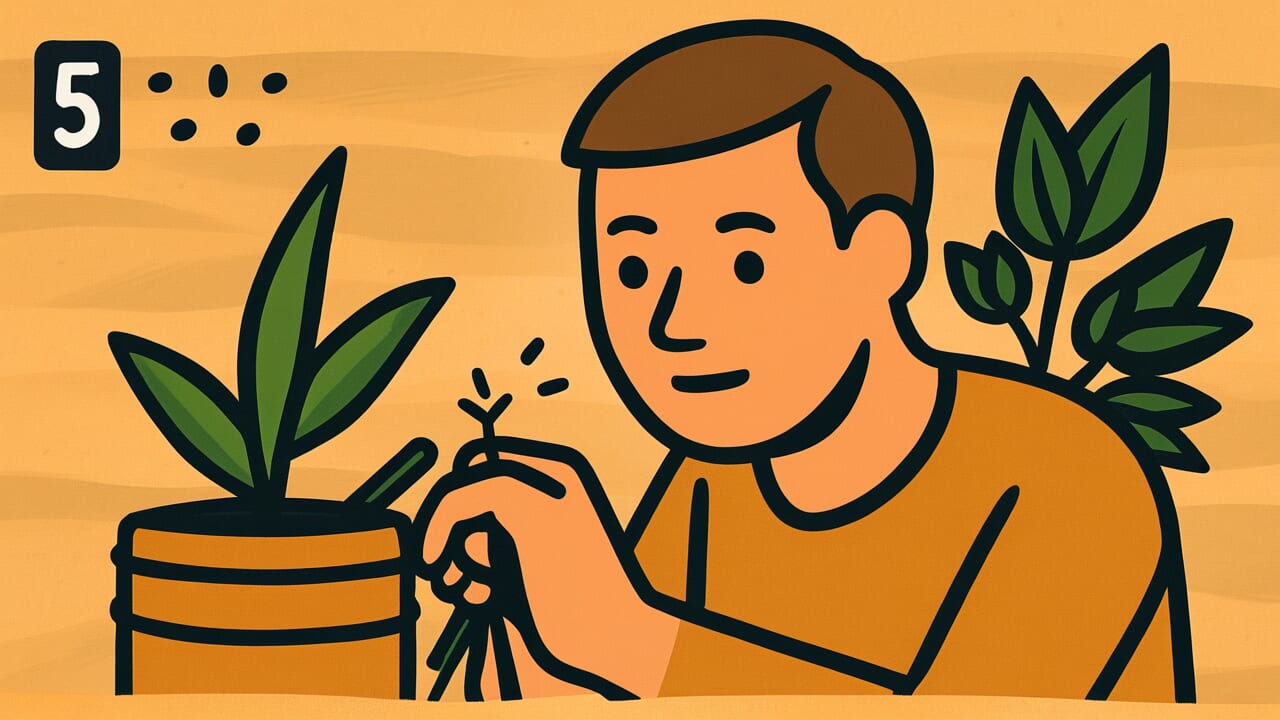How to Read “Even if you have silk and hemp, do not discard rush and straw”
Itoma ari to iedomo kankai wo sutsuru koto nakare
Meaning of “Even if you have silk and hemp, do not discard rush and straw”
This proverb means that even when you have excellent or valuable things, you should not look down on or throw away things that seem humble or inferior.
People use this saying when new technology or talented people appear, and others start to dismiss old methods or less flashy contributors.
It also serves as a warning when people become dazzled by glamorous things and neglect basic foundations or steady effort.
The reason for using this expression is to convey a deep insight: everything has its own role and value, and we should not judge things by superiority alone.
In modern times, efficiency and flashy appearances often get priority. This proverb reminds us that inconspicuous or old things also have value in their own situations.
Origin and Etymology
This proverb is believed to come from ancient Chinese classics. Silk and hemp refer to high-quality fibers, while rush and straw mean humble grasses.
In ancient China, silk and hemp were prized as clothing materials. At the same time, humble plants like rush and straw were essential for making rope, mats, and daily necessities.
If people discarded humble materials just because they had fine ones, they would face trouble when they really needed them.
This saying reflects Confucian thought. Confucianism emphasizes cherishing things and recognizing that all things have value regardless of their status.
The attitude of honoring only superior things while despising inferior ones was seen as an unbalanced and biased view.
This teaching was also important as practical wisdom. In agricultural societies, using every resource without waste was essential for survival.
Even with luxury goods, people should not neglect the simple things they use daily. This lesson came from real-life experience.
Interesting Facts
Rush, mentioned in this proverb, has been valued in Japan since ancient times for making hats, raincoats, and sandals.
Rush hats were essential rain gear for common people. Even those who could afford expensive silk umbrellas often used rush hats for travel or farm work.
Luxury items and humble things did not oppose each other. They coexisted, with people using each in appropriate situations.
Hemp, mentioned as a fine material, was also sacred fiber used in Shinto rituals in Japan.
Though a luxury material, hemp was also widely used as everyday clothing. It supported the lives of everyone from commoners to nobles.
One material having multiple values embodies the teaching of this proverb perfectly.
Usage Examples
- Introducing a new system is fine, but as “Even if you have silk and hemp, do not discard rush and straw” says, we should keep the methods we’ve used for years
- Just because talented newcomers joined doesn’t mean we should forget that “Even if you have silk and hemp, do not discard rush and straw”—we must value veteran experience too
Universal Wisdom
Humans tend to discard what they used before as worthless once they obtain something better.
When you buy a new smartphone, the old one seems unnecessary. When excellent talent appears, the contributions of steady workers fade from view.
This proverb comes from deep insight into this human tendency.
Why do people judge things by superiority and try to discard inferior ones? Because they want to make better choices with limited time and resources.
Seeking efficiency and pursuing the best is an instinct for survival. But when this instinct goes too far, we lose diversity and cannot handle unexpected situations.
Our ancestors saw through this danger. Relying only on superior things is actually fragile.
Even humble-looking things have value in their own situations. They understood that having diverse options is the wisdom for surviving in a rapidly changing world.
This proverb has been passed down for so long because humans keep repeating the same mistake.
We become captivated by superior things and dismiss humble ones. Each time we suffer for it, we realize the truth of this teaching again.
This human history is embedded in these words.
When AI Hears This
Shannon, the founder of information theory, proved that “redundancy” is essential for reliable communication.
Having the same information in multiple ways means the whole survives even if part breaks. This proverb speaks exactly about the value of redundancy.
Consider internet data transmission. Important data always travels through multiple routes.
Even with high-performance fiber optics as “silk and hemp,” we keep wireless and cables as “rush and straw.” Because communication continues even if one path breaks.
NASA’s Mars rovers always carry backup systems with lower performance in case the main computer fails.
Biological DNA uses the same strategy. Genetic information has a double helix structure, so it can repair itself if one side is damaged.
Important genes often have multiple copies. This is the “don’t discard inferior things” strategy that billions of years of evolution chose.
In information theory, systems with redundancy are calculated to be stronger against entropy, or uncertainty.
Relying only on superior things is mathematically a dangerous gamble.
Lessons for Today
Modern society constantly pursues “better things.” The latest technology, highest efficiency, most excellent talent.
But this proverb questions such one-directional values.
Around you, there are probably people who work steadily though not flashily, tools that are old but reliable, and methods that are inefficient but warm.
These tend to be overlooked in the shadow of glamorous new things.
But when you’re really in trouble, when unexpected situations arise, these humble and reliable things might save you.
What matters is maintaining diversity. While adopting superior things, also value basic, traditional, and steady things.
This sense of balance is the wisdom for surviving in our rapidly changing modern world.
Don’t replace everything with new things. Have the flexibility to combine old and new.
That will bring depth and stability to your life.



Comments